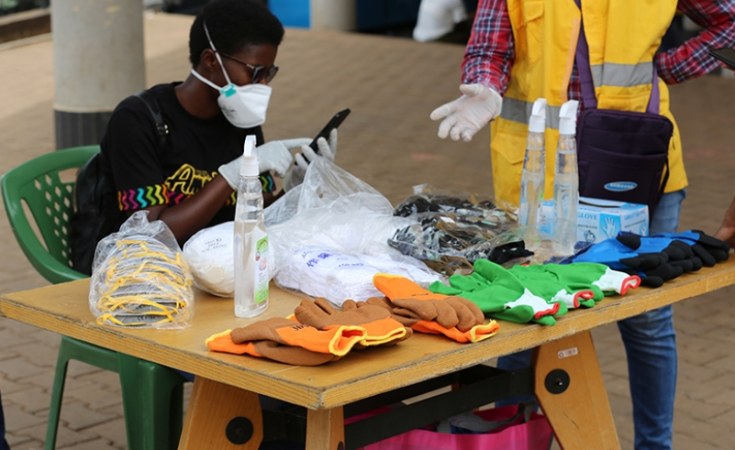
Our Projects are
Transforming African Trade
Quick Contacts
2nd Floor, Fidelity Insurance Centre Waiyaki Way, Westlands

The government will continue engaging neighbouring countries, especially DR Congo, under bilateral and regional frameworks to ensure continued flow of cross border trade, especially after the initial Covid-19 induced border closures exempted only big trucks with transit goods.
James Tayebwa, a cross-border trade policy specialist at the Ministry of Trade and Industry (MINICOM), noted this as he explained how challenges facing small or informal cross-border traders during the Covid-19 pandemic are being addressed.
A report jointly published Wednesday by the UN Economic Commission for Africa (ECA), TradeMark Africa (TMA) and the African Economic Research Consortium (AERC) called for “urgent policy action from the EAC Partner States”, to address the challenges facing informal cross-border traders.
The outbreak of Covid-19 early last year came with a number of restrictions, including cross-border movement.
During the initial restrictions for only big consignments, Tayebwa said, the government “encouraged the small-scale cross border traders to aggregate their goods under groups mainly transporting the goods across the border by hiring motorized tricycles.”
The groups, Tayebwa noted, are not only for the big formal cooperatives but even small traders in the same line of business can team up and trade as one unit.
Trade between neighbouring countries conducted by vulnerable, small and often unregistered traders who move marchandise between markets close to the border forms a significant part of intra-EAC trade.
It contributes income, provides jobs and empowers women in some of the most fragile and impoverished communities on the continent. This is why experts see any threat to informal cross-border trade as a threat to the most vulnerable and want it taken seriously.
Before the pandemic struck more than 40,000 small scale traders crossed the Petite-Barriere border linking Rwanda to DR Congo, one of the busiest on the continent, every day.
“There is continued mobilization of small traders, and others, into cooperatives in order to be facilitated to continue trading. And there is continued mobilization of development partners into supporting informal cross-border traders,” Tayebwa said.
On Rwanda-DR Congo land border crossings, Covid-19 control measures including temperature guns, and free or subsidized rapid antigen testing for small scale cross border traders’groups were established to enable the traders to cross.
A Rwf5,000 fee valid for two weeks is charged on small traders and has been extended to formal traders as well.
The government even set up a joint task force to devise measures to ensure continued flow of trade with the DR Congo during the Covid-19 situation.
Read original article
Disclaimer: The views and opinions expressed in this article are those of the authors and do not necessarily reflect the official policy or position of TradeMark Africa.